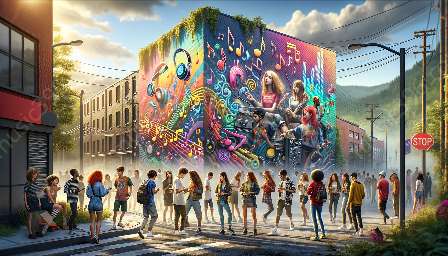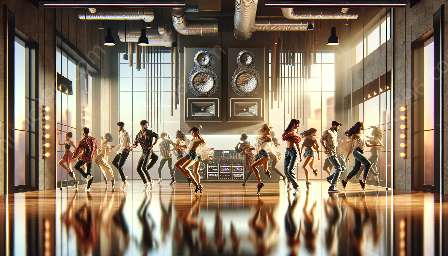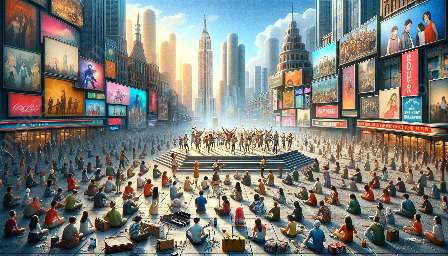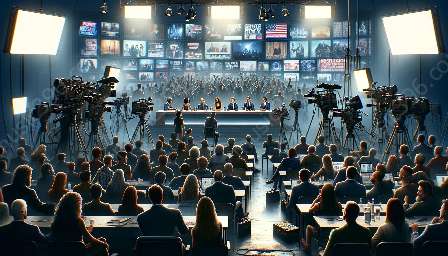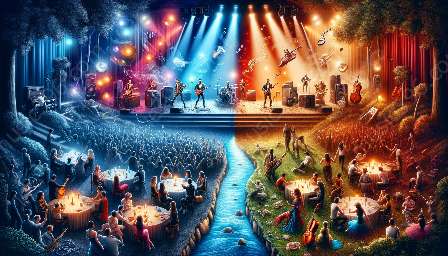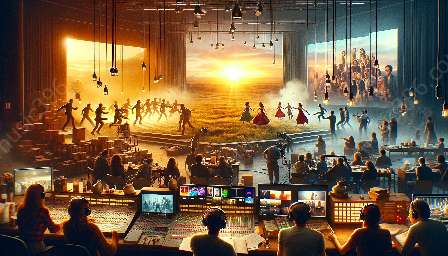Pop music has always been deeply intertwined with social and political influences, shaping and being shaped by the cultural landscape. From its inception to its evolution, the genre has reflected and responded to numerous historical events, social movements, and political ideologies.
Roots of Pop Music
To understand the impact of social and political influences on pop music, it's essential to explore the genre's roots. Pop music emerged in the 1950s as a commercialized form of rock and roll, drawing from a variety of musical styles, including rhythm and blues, country, and folk. The early pop music scene mirrored the sociopolitical climate of post-World War II America, characterized by economic prosperity, the rise of consumer culture, and the civil rights movement.
Impact of Social Movements
Throughout the decades, pop music has been both a mirror reflecting and a megaphone amplifying various social movements. The 1960s saw the rise of the counterculture movement, and pop music became the sound of protest against the Vietnam War, racial injustices, and the establishment. Artists like Bob Dylan, The Beatles, and Joan Baez integrated social and political messages into their music, inspiring generations to advocate for change.
In the 1980s, pop music became a platform for addressing issues such as the AIDS crisis, environmental concerns, and gender equality. Artists like Madonna and Prince challenged norms and pushed boundaries, using their music to reflect the changing societal landscape.
Political Ideologies in Pop Music
Pop music has often intersected with political ideologies, both as a form of dissent and as a tool of propaganda. During the Cold War era, pop music found itself entangled in geopolitical tensions, with artists on both sides of the Iron Curtain conveying political messages through their music. In the West, the punk movement emerged as a response to the conservative political climate, serving as a voice of opposition and rebellion.
In contrast, state-controlled pop music in countries like the Soviet Union served as a tool for promoting government ideologies and values. Songs were carefully crafted to align with the state's narrative, highlighting themes of patriotism and socialism.
Evolution of Pop Music
As pop music continued to evolve, so did the nature of its social and political influences. The 21st century saw an increasing intersection of pop music with discussions on social justice, political activism, and cultural diversity. Artists like Beyoncé, Kendrick Lamar, and Taylor Swift have used their platforms to advocate for causes such as racial equality, LGBTQ+ rights, and gender empowerment.
Furthermore, the rise of digital media and social networking has transformed the way pop music engages with social and political issues. The immediacy of online platforms has allowed artists to address current events and mobilize fans around social causes in real time.
Influence of Global Events
Global events and crises have also consistently shaped the landscape of pop music. The aftermath of September 11, 2001, witnessed a surge in patriotic and reflective songs that captured the collective grief and resilience of the nation. Similarly, the global climate crisis has spurred a wave of environmentally conscious and activist pop music, with artists utilizing their influence to raise awareness about environmental issues.
As the world navigates through the COVID-19 pandemic, pop music has once again emerged as a source of solace and solidarity, with artists creating music that speaks to the challenges and emotions of the times.
Conclusion
From its inception to the present day, social and political influences have remained intrinsic to the fabric of pop music. The genre's evolution reflects the ever-changing tapestry of societal dynamics, capturing the pulse of history and serving as a vessel for societal commentary. As pop music continues to adapt and respond to the complexities of our world, its role in shaping and reflecting social and political influences will undoubtedly persist.







